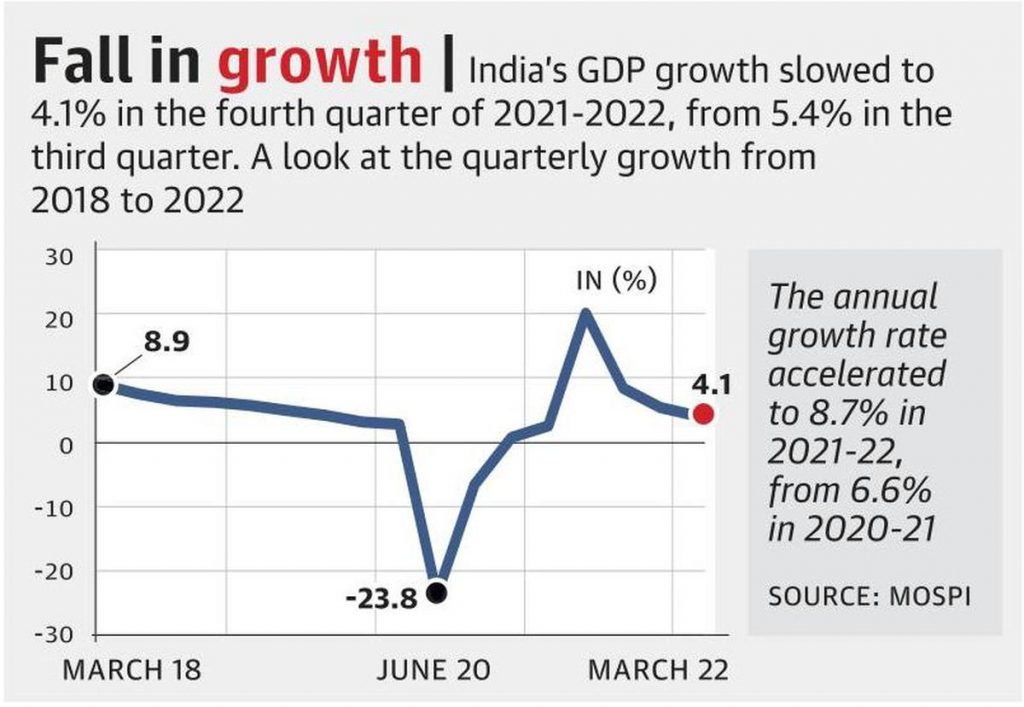By: Srinivasan K. Rangachary
As we enter the tenth day of the lockdown to prevent the rapid spread of Covid-19 in India, it would be useful to underscore the real learnings of this pandemic. They have been articulated as generalities before; now they are starkly before us. First, it is plainly obvious that Indian state capacity is weak despite efforts to improve it over the last decade, and especially under Prime Minister Narendra Modi. Without digitisation, the JAM trio (Jan Dhan, Aadhaar, mobile), and an expanding formal economy, things could have been worse. So, despite motivated criticism by the ‘Left-liberal’ cabal, Modi should focus on improving state capacity in the remaining four years of his term. Second, formalisation – of both citizenship and business – is a critical element in building state capacity. If the US is able to help both individuals and businesses with cash and tax benefits, it is because its businesses are formal even if they may be small in size.
Of the 2.2 trillion dollar package signed by President Trump, apart from financial support to states to finance the new healthcare burden and pay for jobless workers, every adult American will get $1,200 in cash, and each child $500. This is possible because America by and large knows who its citizens are, where they live, and who needs support. Some of the money may fall into the wrong hands, but Americans have the ability to detect those who game the system. This should be a lesson not only to India’s mindless opponents of JAM and the National Register of Citizens, but also the “kagaz nahin dikhayenge” crowd of anarchists. But it isn’t about the kagaz at all; the idea of state capacity is that the state should be able to deliver even without anyone having to brandish a kagaz. The kagaz is only a prelude to building state capacity. Additionally, the US plans to give around half a trillion dollars as loan subsidies to large businesses, which will enable them to raise 10 times that amount from formal banking sources.
All businesses, big or small, will be enabled to retain tax credits if they don’t cut payrolls. There is money to cover upto 50 per cent of payroll costs upto $10,000 per person. Now consider whether India can ever help its own informal companies when the government has no ability to know whether they exist, and if they actually have workers on their payrolls. Modi’s goods and services tax (GST) and the rapid growth in formalisation (through subscriptions to the Employees Provident Fund Organisation) is causing short-term pain as payrolls push up wage bills and GST imposes higher compliance costs. But clearly the process of formalisation has to move forward, if necessary by removing or subsidising most compulsory social security payments. Three, state capacity must go hand-in-hand with greater trust in individuals and companies. This means India must opt for more and more deregulation, preventing the heavy hand of government from stifling entrepreneurship and daily life. The one regressive fallout – hopefully temporary – from the lockdown is that the police and bureaucracy are using their new powers to hinder even legitimate economic activity like the movement, sale and purchase of daily necessities. This must go. This is also one reason why the lockdown cannot continue forever. Four, the state, given its limited capacity, should rope in private expertise and professionalism to not only address the immediate healthcare and testing shortages, but also to give them a larger role in managing the delivery of services over far-flung geographical areas.
Many corporations have donated money to fight Covid-19, but it is unlikely that the government will be able to use the money wisely or efficiently. Shouldn’t it be thinking of using the expertise of the Tatas, Birlas, Ambanis, Mahindras, Premjis and Narayana Murthys to work out viable healthcare and educational plans by giving each of them several districts to handle under the overall directions of state governments and local authorities? Why can’t Coca-Cola or Amazon or Flipkart not take charge of delivering services and essentials to the districts allotted to them? We are now in an era when states can’t be expected to do all things on their own, even if they have the cash or the capacity. Just as we involve non-governmental organisations to help us with reaching welfare to the right people, we now need to rope in the corporate sector to do the same. Management expertise is often better in the private sector, which has a large pool of recently retired and available manpower it can rope in at short notice. The Covid-19 crisis is not going to be a short-term one. There is time to work out a feasible plan for corporate involvement in building state capacity. It’s not about meeting the immediate crisis; it is about course-correcting for the future too. Five, the era of unchecked globalisation is tapering down; freer trade and friction-free movement of goods and services are still good objectives to pursue, but if the terms of globalisation are going to be set only by powerful countries, it is never going to be as important as economists would like us to believe. In any case, globalisation of capital flows and merchandise is not real globalisation.
Globalisation will be incomplete without services, and the free movement of related ‘natural persons’, being part of free trade agreements. Without freer movement of labour, globalisation will end up exploiting the poorer regions of the world which have only cheap labour to offer. In a world where technology and capital can raise output faster than any labour input, we are heading towards a new reality of high demand for high-skilled labour and reasonable demand for lower-skill labour. Middle-skill jobs will start shrinking, and Covid-19 will accelerate the trend. The future of jobs is small entrepreneurship, driven again by technology. Small producers of goods and services have to hitch themselves to the big tech platforms, including platforms that governments can create, and to new technologies like 3D printing, where localised units can produce goods in a cottage based on designs developed by high-skill firms and raw material supplied by factories built to scale elsewhere. Entrepreneurship is the key to jobs and livelihoods, but this cannot flower unless government regulations are easy to comply with – at Centre, state and local levels. Covid-19 should set us rethinking on how to redesign the Indian economy to meet the requirements of a deglobalising world. If we had deglobalised earlier, Covid-19 itself would have been limited to some regions of China. What we have globalised instead is the pandemic. INAV







